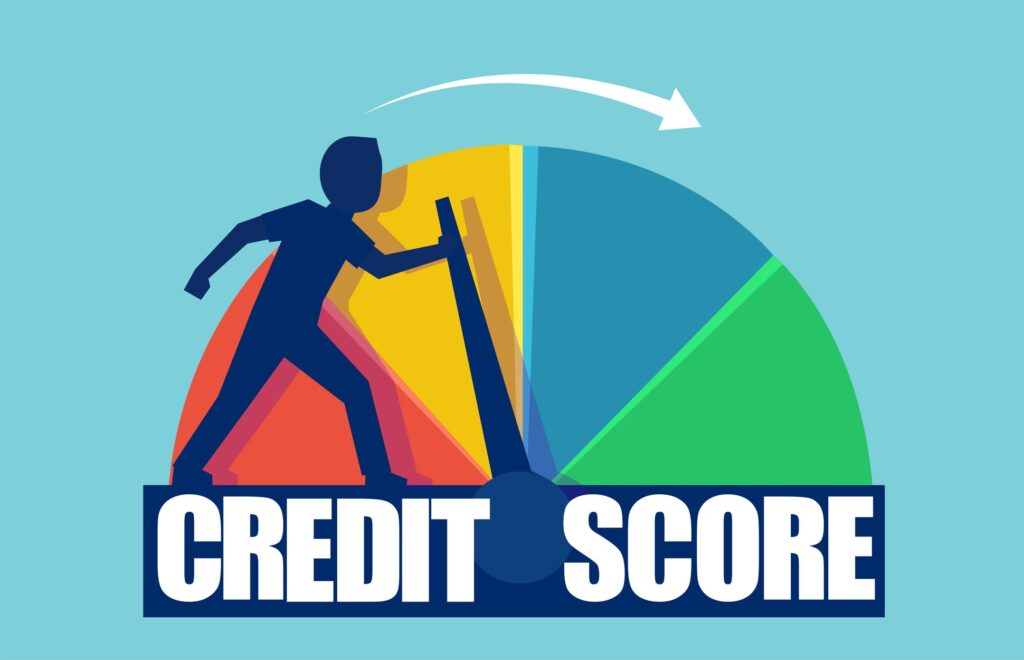Your credit score serves as your stamp of approval to potential lenders. If you’re branded with a bad score, you may miss out on financial opportunities. Even worse, you could disqualify yourself for your dream job. A credit score is more than a vanity symbol of your creditworthiness. It determines your ability to achieve your financial dreams.
Still not convinced? Check out these four reasons you should focus on your score today.
1. Your Credit Score Is Your First Impression to Lenders

Img source: cnbc.com
The most obvious reason to focus on your credit score is to prepare for the day when you need a loan. Creditors often have standards of lending that customers must meet before they will extend credit. Your credit score gives them a quick idea of the type of customer you’d be if they lent you money. A low score could indicate that you mismanage revolving credit or, worse yet, miss payments.
Even if you’re not planning on taking out a home or auto loan, other purchase opportunities require a credit check. Many no-interest financing opportunities for home goods, outdoor equipment, or electronics require a credit check before you can get approved. Fall short on lending criteria and you’ll miss out on a deal for that low (or zero) interest rate.
If your credit is damaged or you haven’t yet established credit, consider a credit builder card to get started. As stated by www.chime.com, these cards often skip the credit check and can help you round out your credit profile. Use your card for essentials and keep the balance lower than 30% of your limit to help build your score. Pay your bill on time and in full, and you should see your score improve thanks to your good habits.
2. Higher Scores Can Lead to Lower Interest Rates

Img source: bridgecu.org
The higher your score, the more likely it is that lenders will want you as their customer. Lenders are in the business of lending money, charging interest for the service, and being paid back by borrowers. While they want to charge enough interest to make a profit, there is a limit to what they can charge. You won’t attract responsible borrowers if you charge too much interest. Charge too little, and you won’t make a profit.
In managing risk, lenders determine how many high-, medium-, and lower-scoring customers to lend to, if any. If your credit score is low, there may be less opportunity for you to be approved by that particular lender. More business is typically reserved for reliable borrowers. Give yourself the best odds of approval by working to boost your credit score every month.
If you’re approved and have a lower credit score, lenders may hedge their losses with you on their client roster. To protect themselves, they may charge you a higher interest rate in the event that you default on the loan. If you get a loan with a low score, you may be signing up to pay thousands more than necessary. Avoid this fate by boosting your credit score now so you can become an easy-to-approve, high-score borrower.
3. You May Pay More for Essentials

Img source: unsplash.com
You have to live somewhere, right? But did you know that bad credit can impact your ability to get a great apartment? A low score can also force you to pay a larger security deposit. Landlords typically check your credit before agreeing to rent to you. If your score is low, you could be denied or be required to pay more than the standard security deposit.
The overpaying doesn’t stop there. Auto insurers review your credit and can increase your rates if your credit is poor. You’d be out hundreds a year and not getting any better coverage. Just think of what you could do with the money you’re overpaying each month.
Low credit may also impact your access to essential home services. Utility companies may require you to provide a security deposit before turning on your service. If your low score indicates you may skip out on your payments, be prepared to park your cash with them. You’d be out your money until you cease service or have enough good payment history to request the funds. The cash held hostage in your utility account could be better used for debt repayment, investing, or fun.
4. A Low Score May Cost You Your Dream Job

Img source: creditcalculators.org
Your resume and LinkedIn profile may have gotten the attention of your recruiter. But did you know that a bad credit score could ruin your chances at your dream job? Unfortunately, your career achievements could be overshadowed by poor payment history and defaulted loans. Don’t let bad credit be a career killer.
Even if you aren’t an accountant or working directly with company funds, a low score may damage your career aspirations. Many employers review your credit score as a part of the background check process. If your role requires a high level of responsibility, a low score could raise trust issues with a potential employer. Companies may be wary of hiring someone who can’t handle their own finances. This is especially true if they hope to trust you with personal and confidential customer information.
Resuscitate your credit score and consider it to be part of your job search package. If your score is low and you’re considering a career move, start working on it now. Credit bureaus update your score regularly based on the information they receive from your creditors. If you’ve been making a consistent effort, you should be able to see improvements within about 45 days.
Check Your Score and Do Something About It
If your score is low, try not to let it overwhelm you. Acknowledge where you are now, consider the habits that got you to this point and make a plan. Payment history and credit utilization account for the two largest impacts to your score. Set up an auto-pay option for your bills, and review your finances weekly to get your payment habits in check. If you’re using over 30% of your available credit limit, work to get it below that amount.
Credit scores rely on your watchful eye. Focus time and energy elsewhere, and they may get out of hand. Give it your proper attention, and your score will go in the right direction.




